Jacke Wilson's Blog, page 7
July 17, 2023
The History of Literature #464 — Percy Bysshe Shelley – The Mature Years
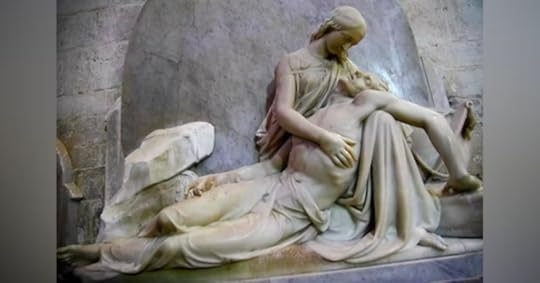
Following up on Episode 446 Percy Bysshe Shelley – The Early Years, Jacke takes a look at the final five years of Percy Bysshe Shelley’s life, from 1817-1822, as the poet turned away from hands-on political action in favor of attempting to transform the world through his art. Works discussed include the Preface to Frankenstein; “Stanzas Written in Dejection, Near Naples”; “Ozymandias”; “Ode to the West Wind”; “The Cloud”; “To a Skylark”; “Adonais, or an Elegy on the Death of John Keats”; Prometheus Unbound; “Music When Soft Voices Die”; “The Waning Moon” and “Art Thou Pale for Weariness.”
Additional listening:
446 Percy Bysshe Shelley – The Early Years451 Mary ShelleyJohn KeatsMore John KeatsHelp support the show at patreon.com/literature or historyofliterature.com/shop. The History of Literature Podcast is a member of Lit Hub Radio and the Podglomerate Network. Learn more at www.thepodglomerate.com/historyofliterature.
July 16, 2023
The History of Literature #463 — Friedrich Nietzsche (with Ritchie Robertson)
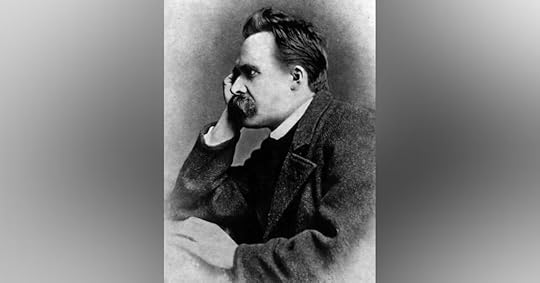
Sigmund Freud once said of the philosopher and cultural critic Friedrich Nietzsche (1844-1900) that “he had a more penetrating knowledge of himself than any man who ever lived or was likely to live.” Well known for his iconoclastic views and intoxicating prose style, Nietzsche went from near obscurity in his lifetime to dominating the ideas of philosophers, novelists, politicians, intellectuals, and artists. In this episode, Jacke talks to Ritchie Robertson, author of Friedrich Nietzsche (Critical Lives), about one of the most influential thinkers and writers of the past century.
Ritchie Robertson is a fellow of the Queen’s College, Oxford, and the Emeritus Schwarz-Taylor Professor of German at the University of Oxford. His books include Goethe: A Very Short Introduction and The Enlightenment: The Pursuit of Happiness, 1680–1790.
Additional listening suggestions:
164 Karl Marx392 Sigmund Freud117 Machiavelli and The PrinceHelp support the show at patreon.com/literature or historyofliterature.com/shop. The History of Literature Podcast is a member of Lit Hub Radio and the Podglomerate Network. Learn more at www.thepodglomerate.com/historyofliterature.
July 15, 2023
The History of Literature #462 — My Last Book (with Laurie Frankel)
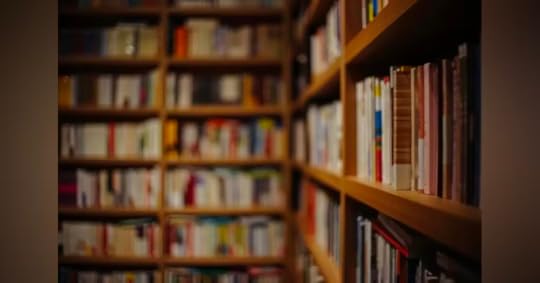
The question stopped Jacke in his tracks. “Dear Jacke,” said the emailer. “What do you want your “last book” to be? This will be the last book you will ever read…” And so, he set about determining what his “last book” should be, with help from dozens of guests (and counting). In this special episode, Jacke talks to super guest Laurie Frankel (Goodbye For Now, One Two Three) about her choice for the “last book” she will ever read. With special cameos from Dinitia Smith, Saikat Majumdar, Isaac Butler, and Anna Beer.
Additional listening suggestions:
332 Hamlet (with Laurie Frankel)360 FMK Shakespeare! (with Laurie Frankel)414 The Golden Bowl by Henry James (with Dinitia Smith)447 Lady Chatterley’s Lover (with Saikat Majumdar)449 Method Acting and “Bad Hamlet” (with Isaac Butler)459 Eve Bites Back! An Alternative History of English Literature (with Anna Beer)Help support the show at patreon.com/literature or historyofliterature.com/shop. The History of Literature Podcast is a member of Lit Hub Radio and the Podglomerate Network. Learn more at www.thepodglomerate.com/historyofliterature.
July 14, 2023
The History of Literature #461 — The Peabody Sisters (with Megan Marshall)
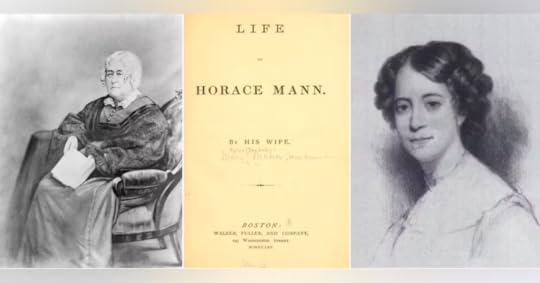
Pulitzer-Prize-winning literary biographer Megan Marshall joins Jacke to discuss the book that was twenty years in the making: The Peabody Sisters: Three Women Who Ignited the American Renaissance. This “stunning work of biography,” as the New York Times labeled it, tells the story of Elizabeth, Mary, and Sophia Peabody, the nineteenth-century New England women who made intellectual history.
MEGAN MARSHALL is the winner of the 2014 Pulitzer Prize in Biography for Margaret Fuller, and the author of The Peabody Sisters, which won the Francis Parkman Prize, the Mark Lynton History Prize, and was a finalist for the Pulitzer Prize in 2006. She is the Charles Wesley Emerson College Professor and teaches narrative nonfiction and the art of archival research in the MFA program at Emerson College. For more, visit www.meganmarshallauthor.com.
Additional listening suggestions:
120 Emily Dickinson356 Louisa May Alcott296 Nathaniel Hawthorne111 The Americanest American – Ralph Waldo EmersonHelp support the show at patreon.com/literature or historyofliterature.com/shop. The History of Literature Podcast is a member of Lit Hub Radio and the Podglomerate Network. Learn more at www.thepodglomerate.com/historyofliterature.
July 13, 2023
The History of Literature #460 — Rabindranath Tagore
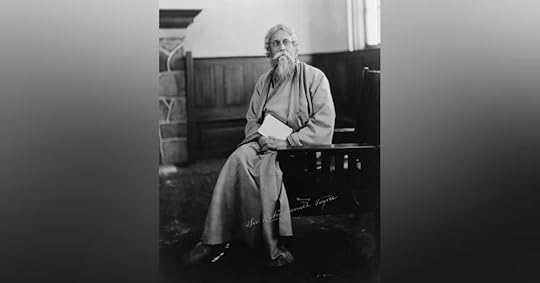
In this episode, Jacke takes a look at the life and works of the legendary Bengali writer Rabindranath Tagore (1861-1941). Central to what became known as the Bengali Renaissance, Tagore’s poetry, short stories, songs, essays, paintings, and plays earned Tagore widespread praise from Indians and non-Indians alike. Among many other awards and accolades, in 1913 Tagore became the first non-European to receive the Nobel Prize for Literature.
Additional listening suggestions:
381 C. Subramania Bharati (with Mira T Sundara Rajan)323 Salman Rushdie35 Ronica DharHelp support the show at patreon.com/literature or historyofliterature.com/shop. The History of Literature Podcast is a member of Lit Hub Radio and the Podglomerate Network. Learn more at www.thepodglomerate.com/historyofliterature.
July 12, 2023
The History of Literature #459 — Eve Bites Back! An Alternative History of English Literature (with Anna Beer)
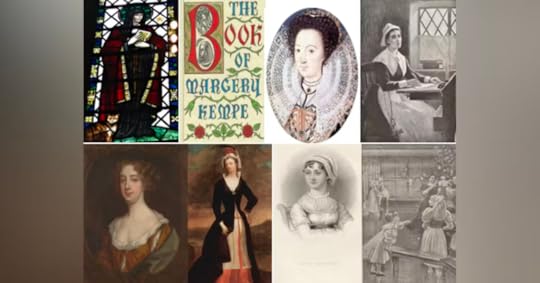
Jacke talks to author Anna Beer about her new book Eve Bites Back! An Alternative History of English Literature, which tells the stories of eight women (Julian of Norwich, Margery Kempe, Aemilia Lanyer, Anne Bradstreet, Aphra Behn, Mary Wortley Montagu, Jane Austen, and Mary Elizabeth Braddon) who were warned not to write – but who did anyway.
If you enjoyed this topic, you might also like our Forgotten Women of Literature series:
261 Enheduanna (with Charles Halton)263 Cai Yan (Wenji)265 Aemelia Lanyer268 Sor Juana Inés de la Cruz340 Constance Fenimore Woolson359 Eliza HaywoodHelp support the show at patreon.com/literature or historyofliterature.com/shop. The History of Literature Podcast is a member of Lit Hub Radio and the Podglomerate Network. Learn more at www.thepodglomerate.com/historyofliterature.
July 11, 2023
The History of Literature #458 — Alexander Pushkin (with Robert Chandler)
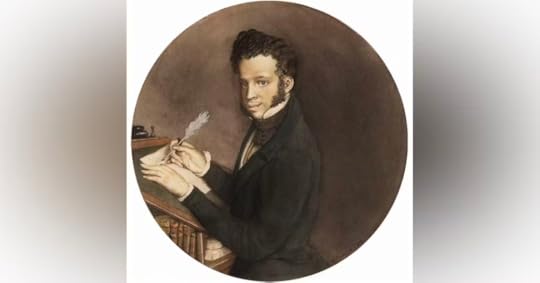
For many Russian writers and readers, Alexander Pushkin (1799-1837) holds a special place: his position in Russian literature is often compared to Shakespeare’s in English, Dante’s in Italian, and Goethe’s in German. In this episode, Jacke talks to Pushkin translator Robert Chandler (Peter the Great’s African: Experiments in Prose) about the life and works of Russia’s “greatest poet and founder of modern Russian literature.”
Additional listening suggestions:
169 Dostoevsky150 “The Lady with the Little Dog” by Anton ChekhovChekhov and “Gooseberries”Additional resources:
Chandler’s review of Selected Poetry, by Alexander Pushkin, translated by Anthony Wood
Help support the show at patreon.com/literature or historyofliterature.com/shop. The History of Literature Podcast is a member of Lit Hub Radio and the Podglomerate Network. Learn more at www.thepodglomerate.com/historyofliterature.
July 10, 2023
The History of Literature #457 — The Secret Life of Emily Dickinson’s Editor (The Thomas Wentworth Higginson Story) | PLUS Making (Book) Dreams Come True (with Eve Yohalem and Julie Sternberg)
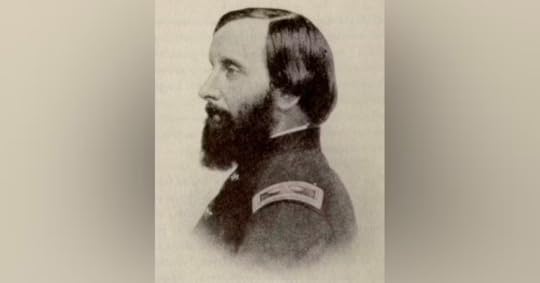
Thomas Wentworth Higginson (1823-1911) has become famous as the man who in 1862 encouraged young contributors to submit to his magazine – and who received in reply four poems from an unknown woman in Amherst, who asked whether he thought her verses were alive. Her name, of course, was Emily Dickinson, and Higginson recognized her genius immediately. But there was more to the Higginson story than just his relationship with one of America’s greatest poets. He was also a member of the antislavery group known as “The Secret Six,” and during the Civil War, he was colonel of the First South Carolina Volunteers, a regiment consisting of former slaves. In this episode, Jacke takes a look at the two sides of this unassuming but astonishing man.
PLUS Jacke is visited by Eve Yohalem and Julie Sternberg (hosts of the podcast Book Dreams), who are working to fund a bookmobile that will deliver free books to children in need this holiday season. Learn more about how you can help at https://www.bookdreamsinc.org.
Additional listening suggestions:
169 Dostoevsky150 “The Lady with the Little Dog” by Anton ChekhovChekhov and “Gooseberries”And from the Book Dreams Podcast!
Native Americans and ComedyA Harvard Professor, a Con Man, and the Gospel of Jesus’s WifeHelp support the show at patreon.com/literature or historyofliterature.com/shop. The History of Literature Podcast is a member of Lit Hub Radio and the Podglomerate Network. Learn more at www.thepodglomerate.com/historyofliterature.
July 9, 2023
The History of Literature #456 — Maya Angelou
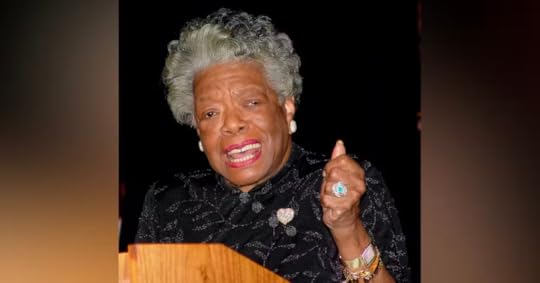
Best known for her autobiography I Know Why the Caged Bird Sings (1969), Maya Angelou (1928-2014) was a woman of many talents and accomplishments. In this episode, Jacke takes a look at the life and works of this incredible singer, dancer, songwriter, activist, poet, actor, director, documentary producer, and of course, memoirist.
Additional listening:
Learn more about one of Angelou’s inspirations in Episode 300 Frederick Douglass and Episode 311 Frederick Douglass Learns to Read.Professor Farah Jasmine Griffin joined us last year for a great discussion about her book in Episode 358 The Profound Wisdom of Black Life and Literature.We looked at the debate between James Baldwin (who later encouraged Angelou to write her autobiography) and William Faulkner in Baldwin v. Faulkner.Help support the show at patreon.com/literature or historyofliterature.com/shop. The History of Literature Podcast is a member of Lit Hub Radio and the Podglomerate Network. Learn more at www.thepodglomerate.com/historyofliterature.
July 8, 2023
The History of Literature #455 — Gustave Flaubert
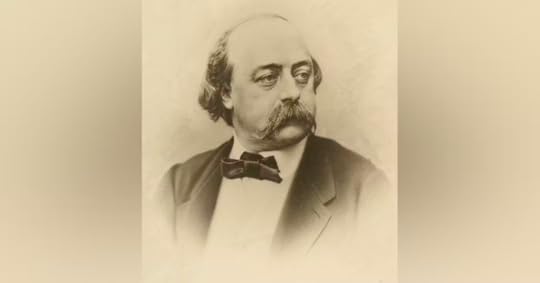
Perhaps contemporary critic James Wood put it best: “Novelists,” he wrote, “should thank Flaubert the way poets thank spring.” In this episode, Jacke takes a look at the life and major works of Gustave Flaubert (1821-1880), the Frenchman from Rouen who redefined what realism – and prose fiction – could do.
Additional listening:
For the story of Jacke’s trip through Tibet, with Emma Bovary as his trusty companion, try Episode 79 Music That Melts the Stars – Madame Bovary by Gustave Flaubert.To wallow in the muck with Flaubert’s birth-year brother, check out Episode 274 Baudelaire and the Flowers of Evil or Episode 352 Charles Baudelaire (with Aaron Poochigian).To distinguish yourself with some of Flaubert’s illustrious predecessors, try Episode 390 Victor Hugo, Episode 152 George Sand, or Episode 420 Honoré de Balzac (with Carlos Allende).Help support the show at patreon.com/literature or historyofliterature.com/shop. The History of Literature Podcast is a member of Lit Hub Radio and the Podglomerate Network. Learn more at www.thepodglomerate.com/historyofliterature.



